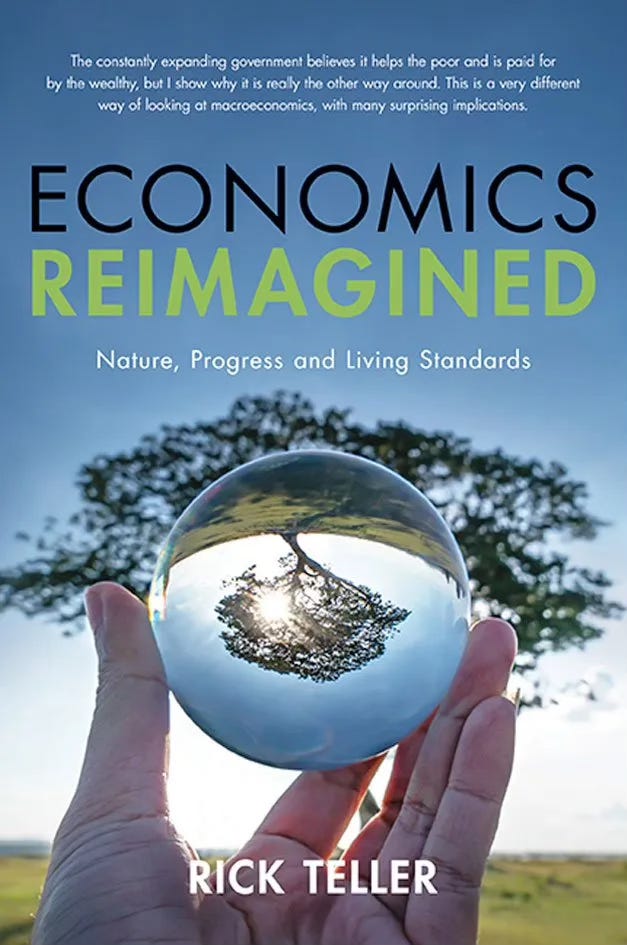Some Substacks Worth Reading
I was about to submit this week’s post, to go out Tuesday AM, when I realized that even I found it boring. It seemed like a good idea at the time, but…
It is too late for me to start a new one from scratch, so instead I’ll tell you about a few of my favorite Substacks. They all offer a free subscription if you want to try them. In some cases they save some posts for paid subscribers, or host zoom calls with guests where only paid subscribers can join, and usually only paid subs can post comments, which is a great idea because they don’t get filled up with spam.
But you get a lot for free, which is why I sign up for so many, and why my email inbox contains about 3500 unread emails. They come in faster than I can read them. I’ve attached a link to their titles:
I am a major fan of Arnold Kling. He is one of the few economists I quoted in my book. He has a PhD in economics, but knows business because he started one of the first successful web based business, and wisely sold the company near the top of the NASDAQ bubble. He is an exceptionally clear thinker and writer. Multiple short posts per week, and he reads interesting people and provides links to their posts.
It’s All Obvious or Trivial Except… (Tim Worstall)
I am also a big fan of Tim Worstall, another writer who knows economics through the eyes of someone with business experience. He was in the business of buying and selling obscure metals and minerals, and seemingly knows at least a little bit about almost everything. He is British, with a tremendous storehouse of regional (I think Devon and Cornwall maybe?) slang and curse words, which he gladly uses when discussing some of the idiot economics commentators, usually writing in the Guardian.
Labor unions, in the old days of piece work (pay per amount of output rather than per hour or week,) would call anyone who was excessively productive a “rate buster.” Bosses would sometimes use that person as an example and cut the pay per piece to pressure everyone else to produce as much.
Dr. Caplan is a modern version of a rate buster. He churns out thoughtful substacks many times per week, and writes new books, usually with provocative ideas, every time you turn around. His most recent, Build Baby Build is a cartoon book about the housing shortage. One of my favorites from six years ago is The Case Against Higher Education, which argues that, as its subtitle states, higher ed is a waste of time and money. What most students get out of it is nothing more than a signal to potential employers that they have a decent enough IQ to be accepted at a certain school, and by getting a degree, that they can complete assigned tasks, making them worth hiring. Given that Caplan’s day job is an economics professor, that was a brave case to make.
David Friedman is a libertarian economist who looks a lot like the late Milton Friedman, not surprising since he is Milton’s son. I’ve known of him for years, but only recently started subscribing. So far I’m impressed. He is a very creative thinker, such as in this post where the question of whether or not to eat some cashews that fell on your kitchen floor has some bearing on contentious political discourse.
Age of Invention by Anton Howes
One of the most common flaws in nearly all political/economic discussions these days is a weird attitude toward history. Either people are demanding recompense for bad things done to their ancestors many centuries ago, or they act as if the world did not exist at all before they were born. Ignorance is widespread of how close most of the world was, in terms of living standards, to our chimpanzee ancestors until the last 500 or so. So it is important to learn economic history and discover what caused the “Great Enrichment,” as economist Deirdre McCloskey calls it, that took us from barely above subsistence to where we are today.
Dr. Howes describes his Substack this way: I’m a historian of innovation. I write mostly about the causes of Britain’s Industrial Revolution, focusing on the lives of the individual innovators who made it happen. I’m interested in everything from the exploits of sixteenth-century alchemists to the schemes of Victorian engineers. My research explores why they became innovators, and the institutions they created to promote innovation even further.
Check them out. They are free, and you can always cancel if you don’t like them. They are all more interesting than anything you are likely to read in a newspaper or magazine.




